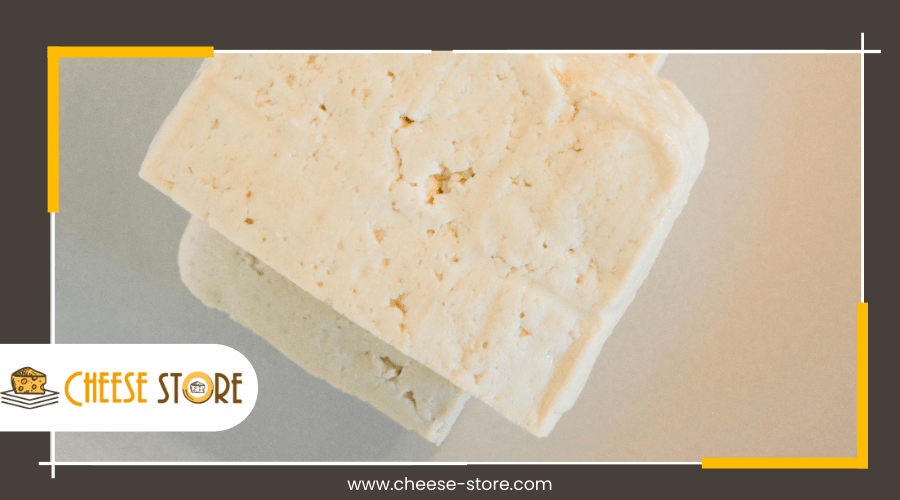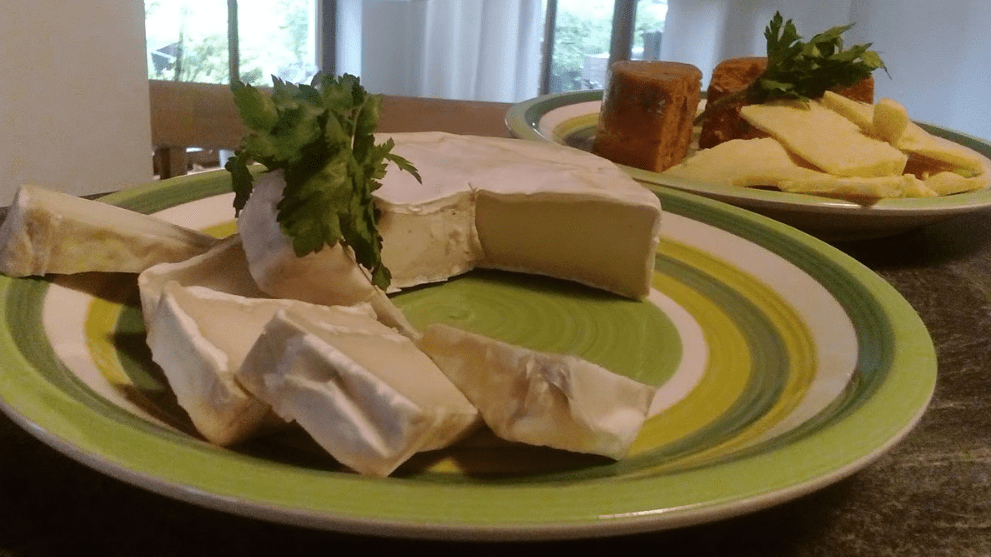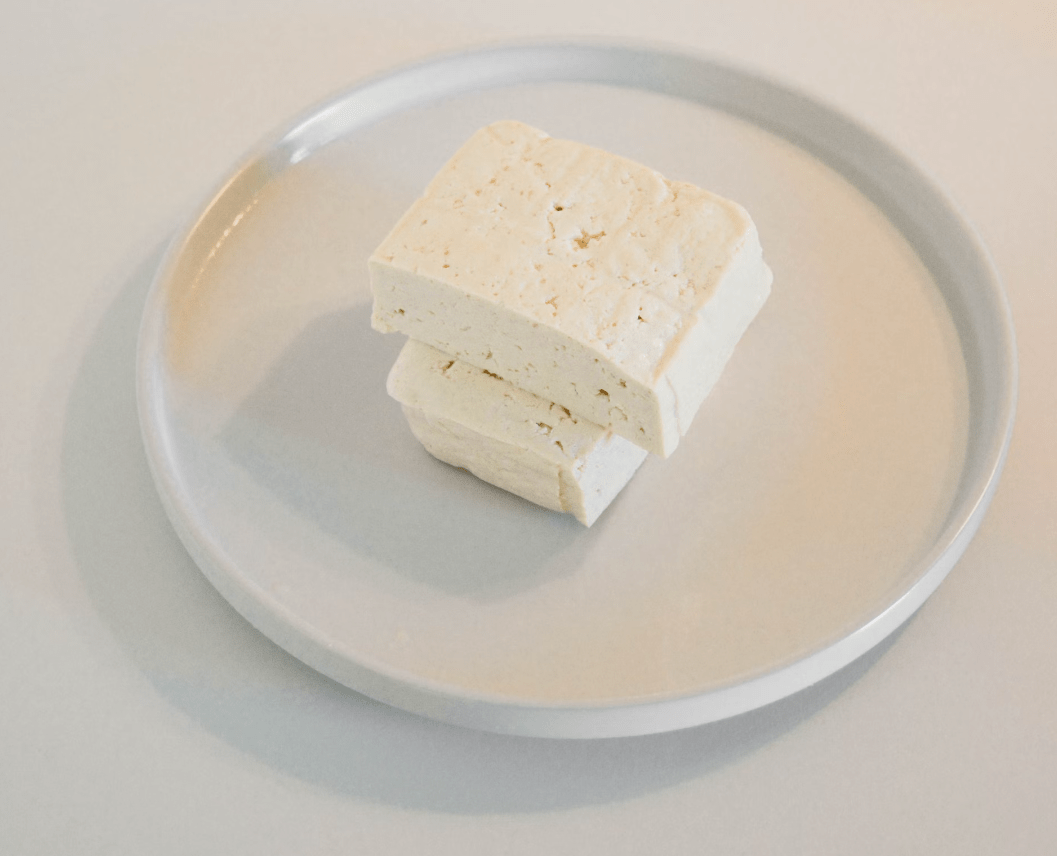While traditional cheese has been a staple in diets for centuries, you might find it intriguing how vegan cheese is carving its own niche in the culinary world. As you explore the evolution from tofu-based alternatives in the 1500s to a market that’s expected to surge to $7 billion by 2030, it’s clear that vegan cheese isn’t just a fleeting trend. With its diverse ingredients, nutritional benefits, and lower environmental impact, you’re likely wondering how these plant-based options truly compare to their dairy counterparts when it comes to flavor, texture, and culinary versatility. Let’s examine the nuances that make vegan cheese an increasingly popular choice among consumers, sparking curiosity about its future innovations and how it’s reshaping the landscape of what we savor.
Key Takeaways
- Vegan cheese has evolved from fermented tofu in the 1500s to include a variety of plant-based ingredients.
- It offers health benefits such as being lower in saturated fats and rich in essential nutrients.
- Its production is environmentally friendlier, emitting lower greenhouse gas emissions compared to dairy cheese.
- The market for vegan cheese is growing, driven by increasing health, environmental, and ethical consumer awareness.
Vegan Cheese Origins
Tracing back to the 1500s, fermented tofu resembling cheese blocks first emerged in China and the Okinawa Islands, marking the early origins of vegan cheese. This discovery was a pivotal moment in the journey towards plant-based alternatives to traditional dairy cheese. The innovation didn’t stop there; by the late 1800s, companies like Wo Sing & Co in San Francisco began producing fermented tofu, showing the explore and appeal of this cheese alternative across cultures and continents.
As you investigate deeper into the history, you’ll find that the 1980s marked a significant turning point in the plant-based cheese evolution. Tofu was initially utilized to replicate the consistency of cheese, providing a base that would later be built upon with a variety of ingredients. The commitment to exploring plant-based options was further solidified in 1929 when scholar Nganshou Wais published the first scientific study of fermented tofu, laying the groundwork for future innovations.
The late 1990s then ushered in a new era for vegan cheese, with the introduction of seeds, plant-based milk, coconut oil, and nuts. These ingredients transformed the landscape, offering richer flavors and textures, and broadening the appeal of plant-based cheese alternatives.
Ingredients Evolution
As vegan cheese has evolved, you’ve likely noticed more innovative ingredient sources hitting the shelves. Researchers, like Nganshou Wais, have played a pivotal role in understanding how these components can mimic traditional cheese while offering health benefits. Let’s explore how these novel ingredients have transformed vegan cheese into a diverse and nutritious alternative.
Novel Ingredient Sources
Exploring the evolution of vegan cheese, you’ll discover that its ingredients have dramatically transformed over the years. Initially, fermented tofu was a groundbreaking component, closely resembling cheese blocks in texture and taste. This innovation dates back to the 1500s in China and the Okinawa Islands, laying the groundwork for modern vegan cheese. By the late 1990s, the diversity of ingredients expanded notably, incorporating plant-based milk, coconut oil, nuts, and seeds. This shift not only improved the taste and texture of vegan cheese but also its nutritional profile.
| Era | Key Ingredients |
|---|---|
| 1500s | Fermented Tofu |
| Late 1800s | Fermented Tofu (Commercial) |
| 1980s | Tofu |
| Late 1990s | Seeds, Plant-based Milk, Coconut Oil, Nuts |
Health Benefits Assessed
Having examined the historical evolution of vegan cheese ingredients, let’s now assess the health benefits these changes have brought about. The shift towards ingredients like tofu, nuts, and nutritional yeast in vegan cheese recipes has greatly enhanced the health benefits of these plant-based alternatives. Unlike dairy cheese, which is higher in saturated fats, vegan cheese offers a heart-healthy option rich in plant-based protein and essential nutrients. This nutritional advantage aligns well with the growing consumer demand for healthier food options, a trend reflected in the vegan cheese market’s projected growth. By choosing vegan cheese, you’re not only supporting the expansion of plant-based alternatives but also investing in your health with each bite.
Production Techniques
As you explore the world of vegan cheese, it’s fascinating to see how fermentation processes and careful ingredient sourcing play pivotal roles. Fermentation not only aids in achieving the desired consistency but also helps in enhancing flavors, making plant-based cheeses comparable to their dairy counterparts. Understanding where these ingredients come from further guarantees the quality and authenticity of the final product.
Fermentation Processes
One key method in crafting vegan cheese involves fermentation processes, where beneficial bacteria and yeast play pivotal roles in mimicking the flavors and textures of traditional dairy cheeses. This technique utilizes microorganisms like lactic acid bacteria and yeast to enhance taste and aroma, breaking down nuts, seeds, or legumes into savory and tangy components. Through controlled fermentation, vegan cheese production achieves unique and diverse flavor profiles, catering to various consumer preferences. This approach not only contributes to the complexity of vegan cheese but also plays an essential role in creating artisanal and high-quality products with depth and character. So, as you explore vegan cheese, you’re actually delving into a world where controlled fermentation crafts the rich, diverse flavors you love.
Ingredient Sourcing
To create vegan cheese that rivals its dairy counterparts, producers meticulously source plant-based ingredients like nuts, seeds, tofu, and plant-based milk. They dive deep into the world of plant-based alternatives, selecting cashews, almonds, and macadamias for their creamy texture and richness essential for that cheese-like experience. Tofu, a marvel derived from soybeans, offers a neutral canvas, allowing for a spectrum of flavors to shine through in the final product. The art of vegan cheese-making doesn’t stop at just picking the right base; it’s also about mastering production techniques. By leveraging fermentation, akin to traditional methods, and focusing on natural ingredients, they’re able to craft dairy-free alternatives that don’t just mimic but stand tall next to traditional cheese in both taste and texture.
Flavor and Texture
In the world of vegan cheese, you’ll find an array of flavors and textures, from sharp and creamy to soft and firm, designed to satisfy any palate. Plant-based alternatives have come a long way, focusing on the intricate balance between flavor and texture. Through innovative vegan cheese production techniques, these alternatives aim to mirror the beloved characteristics of dairy cheese, including its meltability and stretchiness, which are essential for a truly satisfying culinary experience.
Ingredients play a pivotal role in achieving these authentic cheese qualities. Nuts, seeds, and plant-based milks are carefully selected and combined to create a rich and creamy profile that’s hard to resist. Whether you’re after a sharp cheddar or a creamy mozzarella, the diversity in flavor and texture available in vegan cheese caters to a wide range of taste preferences.
The versatility of vegan cheese, from soft and spreadable cream cheeses to firm and sliceable blocks, opens up a world of culinary possibilities. It’s this continuous evolution and dedication to delivering high-quality, plant-based alternatives that are enticing not just vegans but also non-vegans, offering delicious and satisfying options that don’t compromise on flavor or texture.
Nutritional Comparison
How does vegan cheese stack up nutritionally against its dairy counterpart? You might be surprised to learn that vegan cheese is a healthier alternative, mainly because it’s lower in saturated fats. This means you’re less likely to deal with cholesterol issues, a common concern with dairy cheese. Plus, if you’re lactose intolerant, vegan cheese comes to the rescue, offering a delicious option without the digestive discomfort.
Vegan cheese isn’t just about avoiding negatives; it’s also packed with positives. It’s rich in vitamins, minerals, and plant-based protein, making it a nutritious choice for anyone looking to enhance their diet. These benefits are not just limited to your health; they extend to the environment too. Although we’re focusing on the nutritional aspect, it’s important to note that vegan cheese supports sustainable agriculture practices by requiring less water and land and producing fewer greenhouse gas emissions.
As vegan cheese becomes more popular, with the market projected to reach significant figures soon, it’s evident that its nutritional value, alongside its environmental benefits, is driving its growth. So, when you choose vegan cheese, you’re not just making a healthier choice for yourself, but you’re also supporting a more sustainable future.
Environmental Impact
Switching to vegan cheese can greatly lower your carbon footprint, making it a crucial step towards a more sustainable planet. By choosing vegan cheeses, you’re not just opting for a sustainable food alternative; you’re contributing to a substantial reduction in the environmental impact associated with traditional dairy products. The use of plant-based ingredients in vegan cheese production emits markedly lower greenhouse gas emissions, making it a more eco-friendly choice.
Here’s a quick look at how vegan cheese compares to traditional dairy concerning environmental impact:
| Impact Area | Vegan Cheese | Dairy Cheese |
|---|---|---|
| Greenhouse Gas | Markedly Lower | Higher |
| Water Usage | Reduced | More |
| Land Impact | Lower | Higher |
Opting for plant-based cheese alternatives supports sustainable agriculture practices, promoting conservation of resources and reducing reliance on animal agriculture. This shift not only contributes to a healthier planet but also aligns with growing environmental concerns. Every choice towards vegan cheese is a step closer to mitigating the adverse effects of climate change and fostering a more sustainable future.
Consumer Preferences
After exploring the environmental benefits of vegan cheese, let’s now focus on why consumers are increasingly choosing these plant-based alternatives. Your choices are shaping the vegan cheese industry, driven by a desire for products that align with health consciousness, environmental concerns, and ethical considerations. You’re part of a growing global vegan population that’s not just about a diet but a lifestyle embracing health and sustainability.
The vegan cheese industry is keenly aware of your preferences, continuously innovating to meet your demands for variety and taste. Whether you’re vegan for ethical reasons or simply seeking healthier options, there’s a vegan cheese out there for you. It’s not just about replacing dairy; it’s about offering a sustainable choice that doesn’t compromise on flavor.
Collaborations with restaurants are broadening the appeal of vegan cheese, making it accessible to more people and not just the vegan community. This strategy helps introduce plant-based alternatives to a wider audience, showcasing the versatility and benefits of vegan cheese. As you look for ethical and environmentally friendly options, the emphasis on health and sustainability in these products is drawing you in, making vegan cheese an increasingly popular choice.
Market Growth
Reflecting a significant shift in consumer preferences, the vegan cheese market is set to soar, projected to reach $2.5 billion by the end of 2022. This surge is indicative of a broader trend towards plant-based diets, with dairy-free cheese at the forefront. As you’re moving through your local specialty stores, you’ve likely noticed an uptick in the variety and availability of vegan cheese options. This isn’t a fluke. The global vegan cheese market is on a remarkable trajectory, expected to hit $4.5 billion by 2024 and further balloon to $7 billion by 2030.
The rising demand is fueled not just by vegans but by a growing number of consumers leaning into health and environmentally conscious eating habits. Brands like Daiya Foods, Miyokos Creamery, and Violife are responding with an ever-expanding array of delicious and innovative dairy-free cheese products. Additionally, celebrity endorsements and the emergence of artisanal vegan cheese brands are heightening awareness and catering to diverse tastes.
This movement towards plant-based diets is reshaping the landscape of specialty stores and supermarkets alike, making vegan cheese an increasingly common and sought-after commodity.
Future Innovations
As the vegan cheese market continues to grow, innovations in the field are set to redefine the sensory and nutritional value of plant-based cheese options. The focus is now shifting towards not just mimicking traditional cheese but enhancing the health benefits, making Nutritional Foods a core aspect of development. With advanced plant-based cheese technology, you’re about to witness a revolution in how vegan cheese tastes, feels, and nurtures your body.
Expect to see:
- High-protein plant-based cheeses that don’t compromise on flavor or texture, meeting the demands of health-conscious consumers.
- Innovative formulations utilizing unique combinations of plant proteins, starches, and fats to achieve unparalleled cheese-like characteristics.
- Enhanced textures and meltability through cutting-edge processing methods, making vegan cheese indistinguishable from its dairy counterparts in culinary applications.
The vegan cheese industry is at the cusp of a major transformation. With ongoing research and development aimed at creating products with superior functionality and consumer appeal, the future looks bright. You’re not just choosing a dairy alternative; you’re opting for innovative, nutritionally rich foods designed for the discerning palate. Get ready for a new era of vegan cheese that promises to delight and nourish in equal measure.
Conclusion
You’ve seen how vegan cheese has evolved from tofu-based options in the 1500s to a booming industry expected to hit $7 billion by 2030. With diverse ingredients and innovative production techniques, it’s no wonder the flavor, texture, and nutritional value of plant-based cheeses have vastly improved. As you consider its lower environmental impact and align it with growing consumer demand for sustainable, healthy foods, it’s clear vegan cheese isn’t just a trend—it’s the future of conscious eating.



